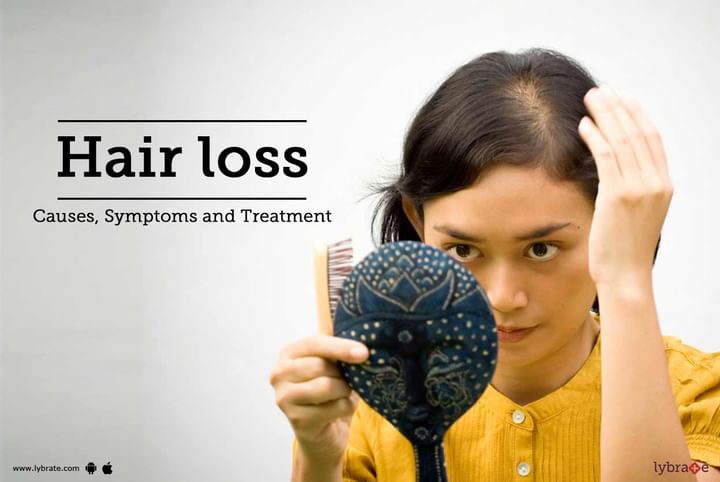Hair Loss - Causes, Symptoms and Treatment
Hair loss can affect just your scalp or your entire body. It can be the result of heredity, hormonal changes, medical conditions or medications. Anyone — men, women and children — can experience hair loss.
Baldness typically refers to excessive hair loss from your scalp. Hereditary hair loss with age is the most common cause of baldness. Some people prefer to let their baldness run its course untreated and unhidden. Others may cover it up with hairstyles, makeup, hats or scarves. And still others choose one of the treatments available to prevent further hair loss and to restore growth.
Before pursuing any hair loss treatment, it is highly recommended to talk with your doctor about the cause of the hair loss and the best treatment options. Symptoms Hair loss can appear in many different ways, depending on what's causing it. It can come on suddenly or gradually and affect just your scalp or your whole body. Some types of hair loss are temporary, and others are permanent.
Signs and symptoms of hair loss may include:
- Gradual thinning on top of head.
- Circular or patchy bald spots.
- Sudden loosening of hair.
- Patches of scaling that spread over the scalp.
When to see a doctor
See your doctor if your child or you are distressed by hair loss and want to pursue treatment. Also, talk to your doctor if you notice sudden or patchy hair loss or more than usual hair loss when combing or washing your or your child's hair. Sudden hair loss can signal an underlying medical condition that requires treatment.
Causes
The exact cause of hair loss may not be fully understood, but it's usually related to one or more of the following factors:
- Family history (heredity)
- Hormonal changes
- Medical conditions
- Medications
Risk factors
A number of factors can increase your risk of hair loss, including:
- Family history
- Age
- Poor nutrition
- Certain medical conditions, such as diabetes and lupus
- Stress Treatments and drugs
Treatments for hair loss include medications, surgery, laser therapy, and wigs or hairpieces. Your doctor may suggest a combination of these approaches in order to get the best results.
Medication
If your hair loss is caused by an underlying disease, treatment for that disease will be necessary. This may include drugs to reduce inflammation and suppress your immune system, such as prednisone. If a certain medication is causing the hair loss, your doctor may advise you to stop using it for at least three months.
- Minoxidil (Rogaine): Minoxidil is an over-the-counter liquid or foam that you rub into your scalp twice a day to grow hair and to prevent further hair loss. It may be used by men and women.
- Finasteride (Propecia): This prescription drug is available only to men. It's taken daily in pill form. Many men taking finasteride experience a slowing of hair loss, and some may show some new hair growth. You need to keep taking it to retain benefits.
- Platelet Rich Plasma Therapy: This is one of the latest treatments for hair loss and is especially good for patients who do not wish to go for surgery. In this, a sample of your blood is withdrawn from which platelets are separated using a centrifuge. These are then injected directly into the scalp. Platelets contain growth factors which promote the growth of new hair and reduce hair loss. This procedure requires multiple sittings over a period of 5 to 6 months. It is an outpatient procedure with no down time. You can resume your daily activities almost immediately.
Surgery
In the most common type of permanent hair loss, only the top of the head is affected. Hair transplant or restoration surgery can make the most of the hair you have left. During this procedure, your surgeon removes tiny plugs of skin, each containing a few hairs, from the back or sides of your scalp. He or she then implants the plugs into the bald sections of your scalp. You may be asked to take a hair loss medication before and after surgery to improve results. Surgical procedures to treat baldness are expensive and can be painful.
Wigs and hairpieces
You may want to try a wig or a hairpiece as an alternative to medical treatment or if you don't respond to treatment. It can be used to cover either permanent or temporary hair loss. Quality, natural-looking wigs and hairpieces are available.
Prevention
- Eat a nutritionally balanced diet.
- Avoid tight hairstyles, such as braids, buns or ponytails.
- Avoid compulsively twisting, rubbing or pulling your hair.
- Treat your hair gently when washing and brushing. A wide-toothed comb may help prevent pulling out hair.
- Avoid harsh treatments such as hot rollers, curling irons, hot oil treatments and permanents. If you wish to discuss about any specific problem, you can consult a Dermatologist.



+1.svg)
